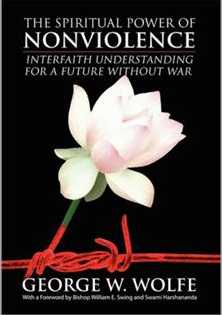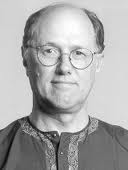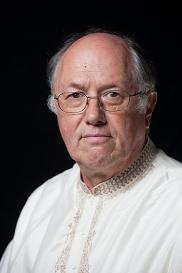Activism Must be Based on Truth
During the days following the presidential election, I heard numerous people express how glad they were the election season was over. They were tired of the negative and misleading political ads, and of the 24-hour news channels that aired the continual chatter of political pundits offering their skewed version of the candidates.
All the media coverage that was given to the political candidates and related issues is a form of activism. In our stormy political culture, we tend to like activism as long as we agree with its cause. When it runs counter to our views, we usually resent its message and wonder what the world is coming to.
 In my book The Spiritual Power of Nonviolence, I point out that a world without war would not be a world without conflict. Rather, it would be a world where humanity has learned to deal with conflict using effective strategies of nonviolence. Such strategies include media distribution and political free speech of all types.
In my book The Spiritual Power of Nonviolence, I point out that a world without war would not be a world without conflict. Rather, it would be a world where humanity has learned to deal with conflict using effective strategies of nonviolence. Such strategies include media distribution and political free speech of all types.
If we look at the political speech from this past election, we see that certain activism failed to achieve its goals. What we should be asking ourselves is, “Why did much of the activism which came from political action organizations supporting Republican candidates, fail?”
The answer lies in Mahatma Gandhi’s definition of satyagraha, which was Gandhi’s term for active nonviolence.
The word satyagraha begins with the Sanskrit syllable “Sat” which refers to truth. What is implied by satyagraha is that activism must be grounded in truth if it is going to succeed. The problem with the activism of many Tea Party politicians and political commentators is that the views they were advocating were often not based on truth.
Todd Akin was the Republican senatorial candidate running against Democrat Claire McCaskill in Missouri. Last August, Akin claimed that, if a rape was “legitimate,” a woman’s bodily system would “shut down,” preventing pregnancy. In Indiana, Democrat Joe Donnelly defeated Republican Richard Mourdock after Mourdock asserted that a pregnancy resulting from rape was “intended by God.”
Even more out of touch was Judge Tom Head of Lubbock, Texas who said President Obama would send United Nations troops to Texas if re-elected. Ironically, he used this claim to support his rationale for a tax hike to pay for more deputies and attorneys! The voting public does not view such claims as based on truth.
What the Republican party needs to rebuild itself are candidates, media commentators and political action leaders that are better educated and informed.
In a world without war, we are going to see more activism, not less, and the activism will undoubtedly continue to be intense. Nonviolent activism is not passive. It is actually a form of fighting, and it is by far a more honorable way to fight than by settling our disputes with guns and bullets. But to succeed, activism must be grounded in reality, not in fabricated beliefs.
———————
George Wolfe is the Coordinator of Outreach Programs for the Ball State University Center for Peace and Conflict Studies. He is also a trained mediator and the author of The Spiritual Power of Nonviolence: Interfaith Understanding for a Future Without War.





 For our alpha test of InterMix Voices of Humanity software, we held a discussion with participants from two groups, the Big Endians and the Little Endians ala Gulliver’s Travels. These two groups cannot agree which end of the egg should be up in the egg cup. Well, when the issue is so night and day, not even InterMix can find a solution, though there were mighty attempts at bridging the gap, including an intriguing notion that equi-ended eggs might be bio-engineered.
For our alpha test of InterMix Voices of Humanity software, we held a discussion with participants from two groups, the Big Endians and the Little Endians ala Gulliver’s Travels. These two groups cannot agree which end of the egg should be up in the egg cup. Well, when the issue is so night and day, not even InterMix can find a solution, though there were mighty attempts at bridging the gap, including an intriguing notion that equi-ended eggs might be bio-engineered.